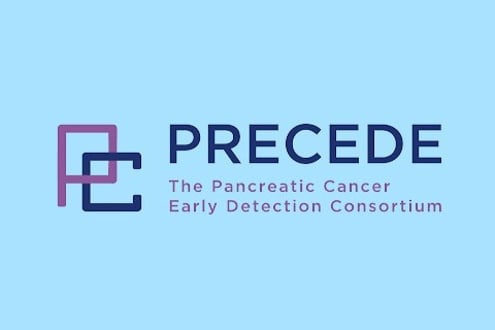CDKN2A: Options for Managing Cancer Risk
Guidelines for People with Inherited Mutations
The following are risk management guidelines developed by experts for people with mutations.
We recommend that you speak with a genetics expert who can look at your personal and family history of cancer and can help you determine the best risk management plan. You can learn more about risk management options for different cancers in our section on Screening and Risk Reduction by Cancer Type.
Melanoma screening and prevention guidelines
|
Beginning Age |
Recommendation |
|
10 |
|
|
Source: Mutations: Cancer Risk and Management Recommendations 2020 (2020). UT Southwestern Harold C: Simmons Comprehensive Cancer Center. |
|
Pancreatic cancer screening options
There are two tests that are used to look for pancreatic cancer in high-risk people.
- MRCP (Contrast-enhanced magnetic resonance cholangiopancreatography) is a special type of imaging that looks closely at the pancreas, liver, gallbladder, bile duct and pancreatic duct to find abnormalities such as cancer.
- EUS (Endoscopic ) involves passing a tiny scope with an attached probe down the esophagus to the stomach. This allows doctors to look closely at the pancreas.
Pancreatic cancer screening guidelines
|
Beginning Age |
Recommendation |
|
|
40 (or 10 years younger than the earliest case of pancreatic cancer in the family) |
|
|
|
Source: NCCN Guidelines: Genetic/Familial High-Risk Assessment: Breast, Ovarian, Pancreatic, , vs. 1 2026. |
||
Other cancers
Some mutations increase the risk for nerve sheath tumors, sarcomas and other cancers. People at risk for these cancer may be advised to have a full body and a brain . Screening recommendations for other cancers are based on age, family history and other known risk factors. National guidelines exist for screening the following cancers:
More Resources
Find Pancreatic Screening Experts
The PRECEDE study has a list of sites with expertise in pancreatic cancer screening.
NCCN Pancreatic Cancer Patient Guidelines
Expert guidelines for people with pancreatic cancer.
Pancreatic Cancer Action Network
Dedicated to fighting pancreatic cancer in a comprehensive way.
Participate in Prevention Research
Below are some of our featured research studies looking at new ways to screen for, prevent or intercept cancer in people with mutations. To search for additional studies, visit our Search and Enroll Tool.
Vaccine for People at High Risk for Pancreatic Cancer
Clinicaltrials.gov identifier: NCT05013216
Pancreatic Cancer Screening Study (CAPS5)
Clinicaltrials.gov identifier: NCT02000089
Pancreatic Cancer Early Detection for People at High Risk
Clinicaltrials.gov identifier: NCT04970056
Blood Markers of Early Pancreas Cancer
Clinicaltrials.gov identifier: NCT03568630




